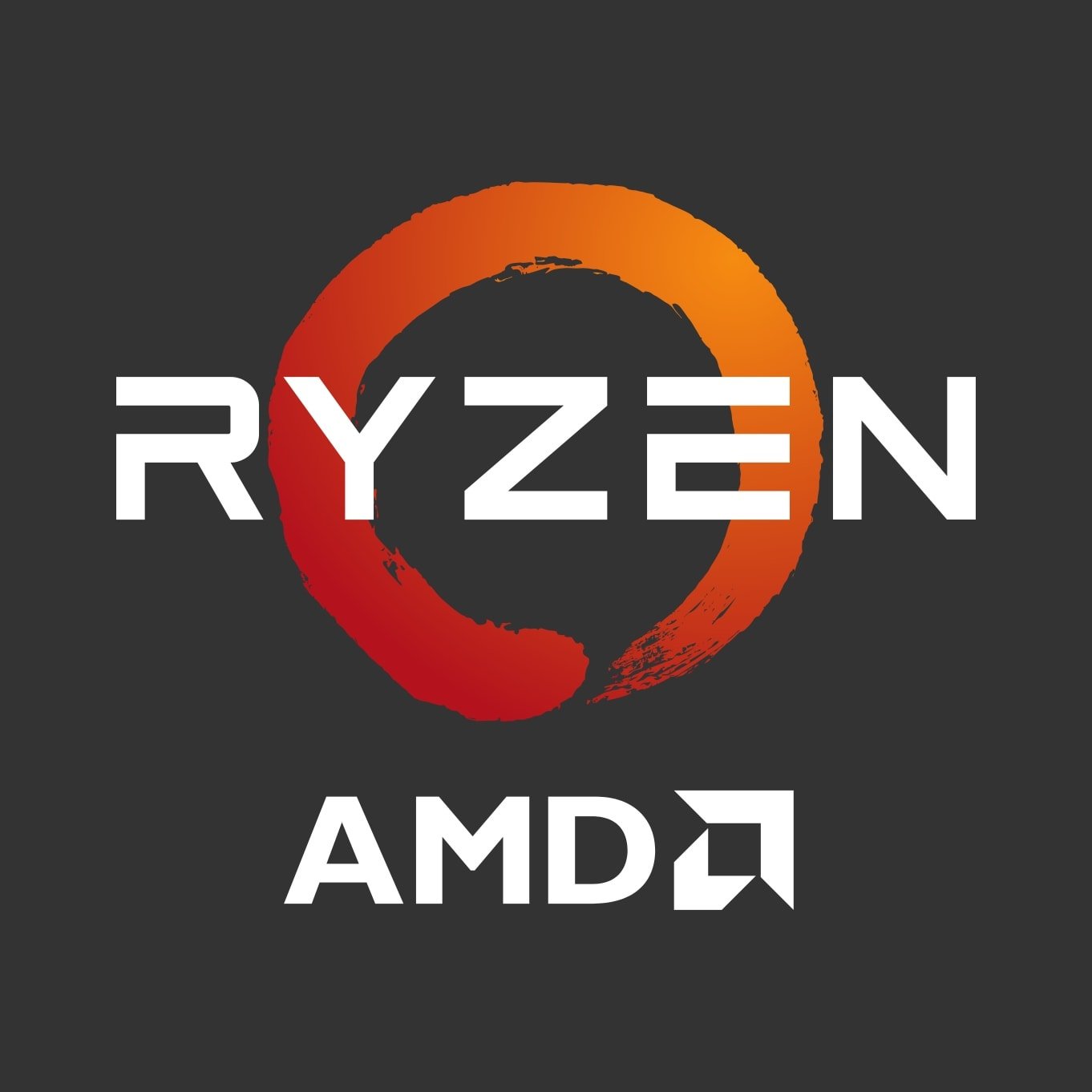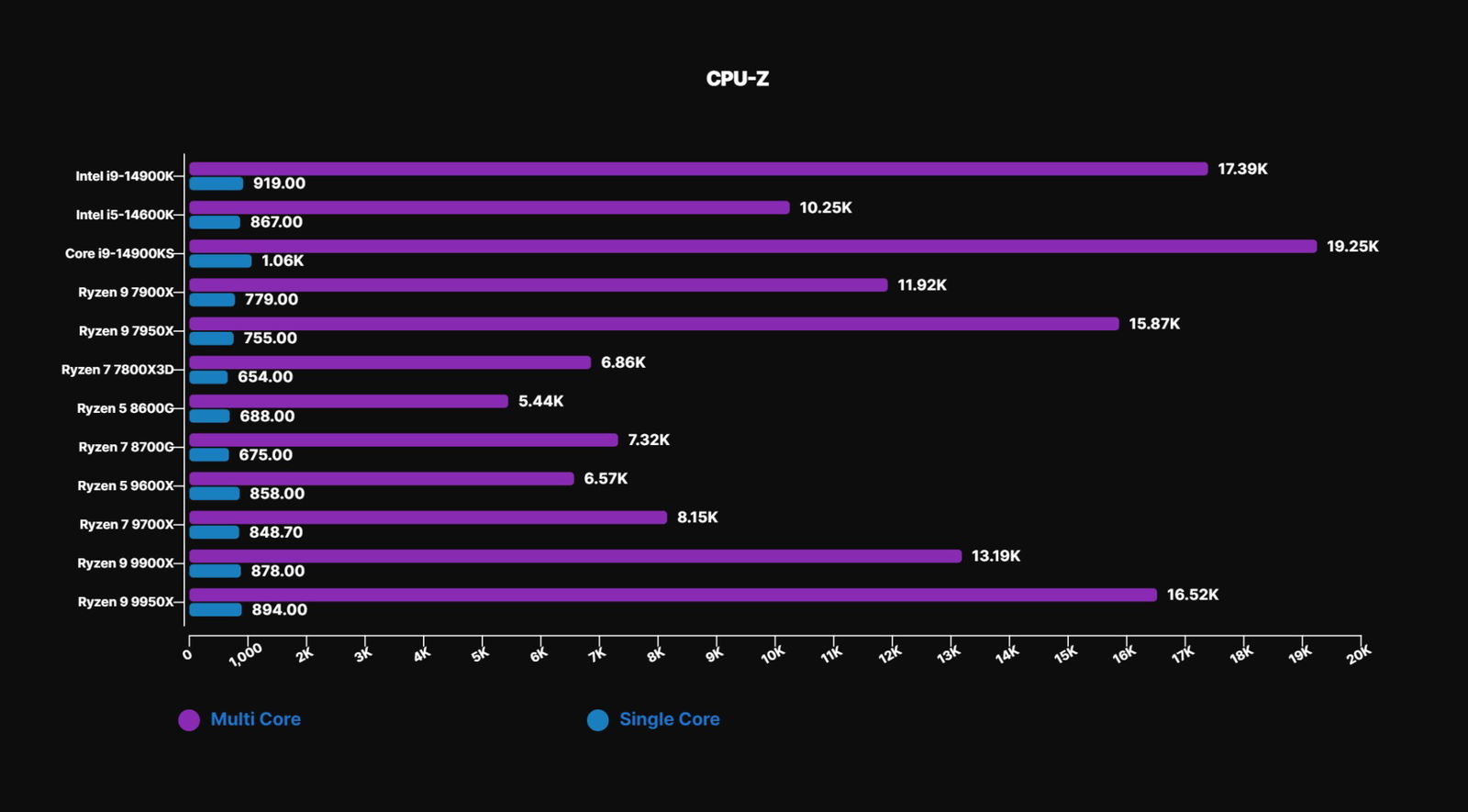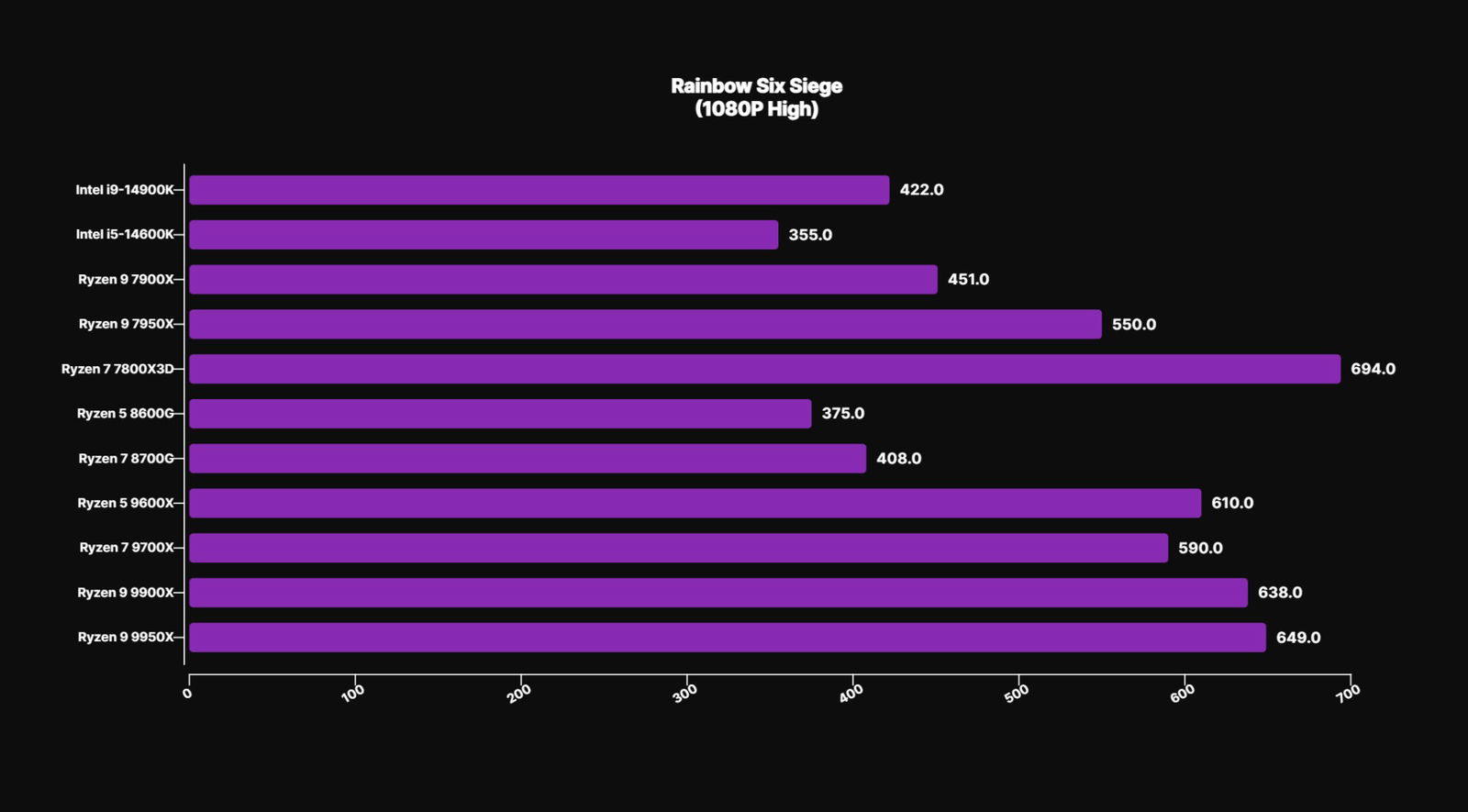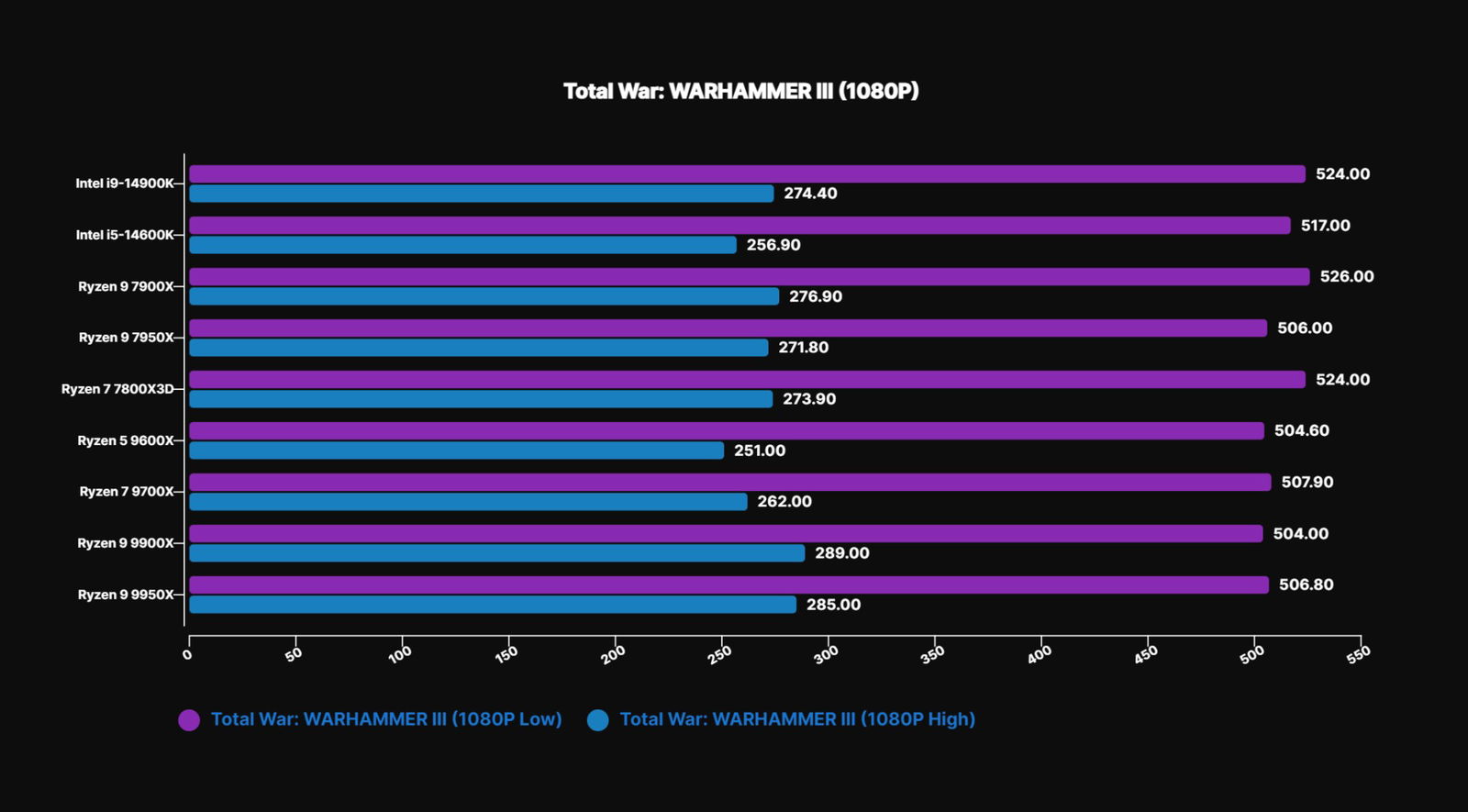I was impressed with the first batch of Zen 5 CPUs, as the new 4nm process showed its potential even in the mid-range models. Now, with the flagship Ryzen 9 9950X CPU finally in hand, things are getting even more interesting. Set to launch on August 15, 2024, this powerhouse processor represents the pinnacle of AMD’s Zen 5 architecture, featuring impressive specs and a clear intent to challenge Intel’s top CPUs. While performance is about more than just specs, the Ryzen 9 9950X is shaping up to be a compelling option for high-end PC builders and a significant step forward with AMD’s new architecture.
Building on the foundation of the 7950X, the Ryzen 9 9950X is a 16-core, 32-thread powerhouse designed to handle the most demanding tasks with ease. With a base clock of 4.3 GHz and the ability to boost up to a blazing 5.7 GHz boost, this chip is well-equipped for everything from high-end gaming to professional-grade content creation. AMD has impressively managed to fit all this power into a 170W TDP envelope, a testament to the performance this processor delivers.

But what really sets the 9950X apart is its new 4nm manufacturing process. This allows for improved efficiency and higher clock speeds compared to its predecessor, the 7950X. The 9950X supports DDR5 memory with speeds up to 5600 MT/s and sees support for also supports EXPO DDR5-8000, ensuring your system has plenty of bandwidth to keep up with those blazing-fast cores. It also comes with PCIe 5.0 support, future-proofing your rig for the next generation of high-speed storage and graphics cards.
“While performance is about more than just specs, the Ryzen 9 9950X is shaping up to be a compelling option for high-end PC builders and a significant step forward with AMD’s new architecture.”
Zen 5 also brings some noteworthy improvements in AI capabilities. While not as AI-focused as the Ryzen AI range of laptop chips, Zen 5 benefits from the new AVX512/VINNI acceleration support, providing a competitive edge over Intel’s 14th-gen chips. Although the gains aren’t enormous, they offer up to a 17 percent improvement in Lama and a 20 percent improvement in Mistral, measured in tokens per second that the CPU can handle.
For PC builders, the 9950X represents an exciting option for those looking to create a no-compromise system. Whether you’re a content creator needing maximum rendering power, a streamer looking to game and encode simultaneously, or just someone who wants the best of the best, this CPU has you covered. At around $649, it is $50 less than the current flagship, the Ryzen 9 7950X.
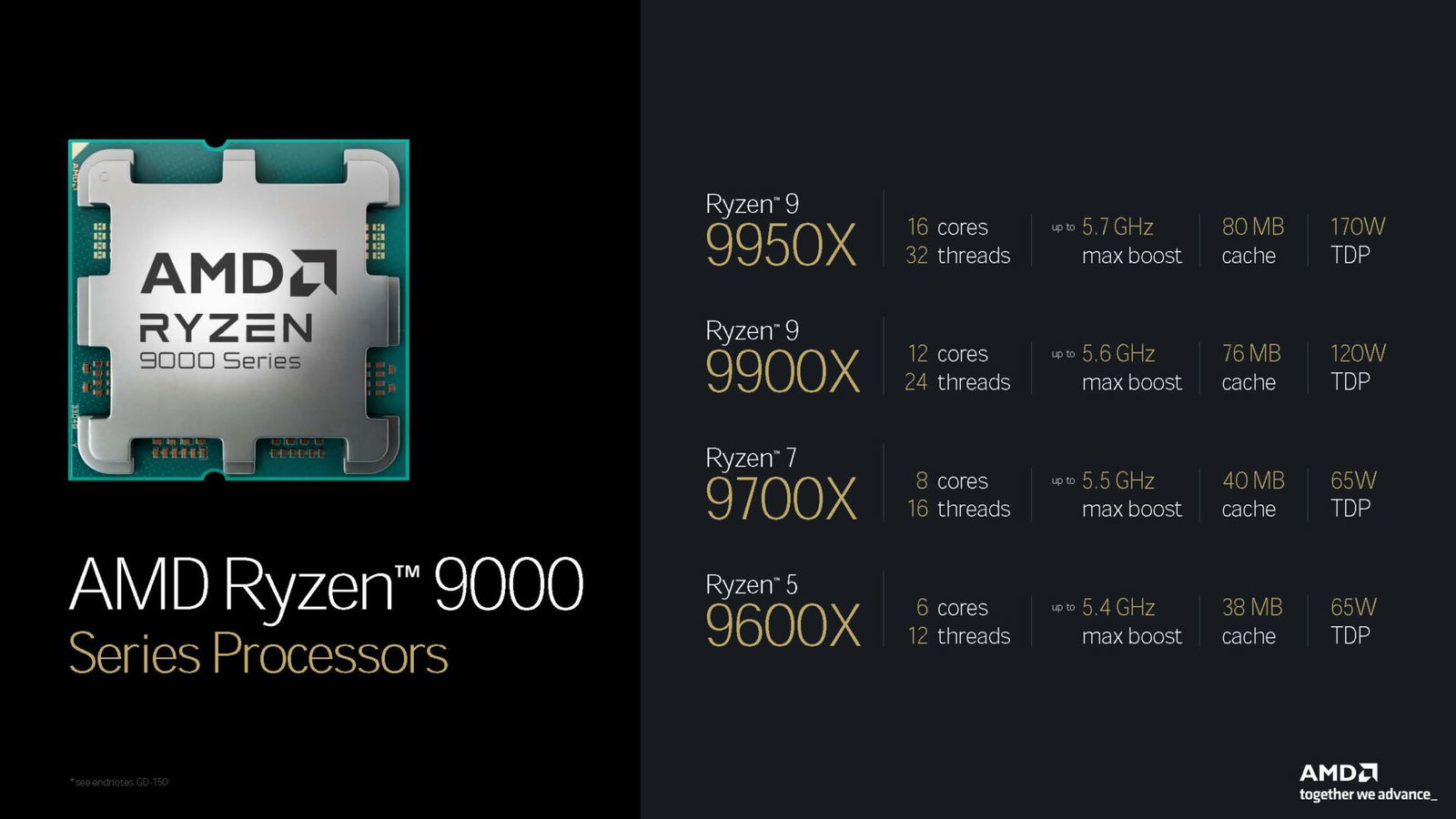
There is no question, on paper, the AMD Ryzen 9 9950X is a powerful offering that not only leverages the new Zen 5 architecture and its 4nm process for efficiency but is also the chip that pushes that process as far as it can go within the range. To test how this methodology stacks up in real-world performance, we slotted the CPU into our AMD test bench, which features an ASUS X670 Master motherboard and 32 GB DDR5-6400 EXPO memory supplied by AMD, a Lexar PCI-E Gen4 2TB m.2 SSD, with a 1000Watt Gigabyte PSU, in a be Quiet! Dark Base Pro 901 PC Case, paired with a reference AMD Radeon RX 7900 XTX for graphics.
This was one of the harder chips to nail down just how much performance it can actually dish out. This is a newer generation of CPU, and it relies on many features of Windows to ensure that the games get the full potential they can offer. This means making sure the latest AMD chipset drivers are installed before any testing can be done.
While not to go into too much detail, when you are testing a range of CPUs, you need to ensure you uninstall and reinstall any chipset drivers. Failing to do so can lead to some extraordinary issues, and sometimes the whole system crashes. Once everything is sorted out, though, you can finally see just what the AMD Ryzen 9 9950X is actually capable of doing.
As we have with the AMD Ryzen 9600X and the 9700X, starting this off with synthetic benchmarks, we see the AMD Ryzen 9 9950X is a beast when it comes to raw performance power. In Cinebench R23, the CPU delivers a fantastic 41249, only losing out to the Intel Core i9 14900KS, a chip built to be the elite tier of the consumer range for the 14th-gen offering. CPU-Z and 7-Zip tests also paint a similar picture, with the 9950X delivering impressive scores that give a taste of what this CPU is capable of when appropriately utilized.
In productivity applications, the AMD Ryzen 9 9950X delivers a solid level of performance that makes sense considering the 32 threads it has to work with, perfect for content creation applications. Jumping into test renders with Adobe Premiere Pro and Davinci Resolve, the CPU was more than capable of trading blows with the 14900K in terms of performance, all while managing to have a lower TDP of 170W compared to the 253W for Intel. Also, much like the rest of the Ryzen AM5 lineup, the CPU also features AV1 encoding thanks to the built-in Radeon graphics, allowing it to take on some of the load in video-based workflows, which gives more GPU power for other uses.
Even from the preliminary tests, it is clear that the AMD Ryzen 9 9950X is a very capable processor. AMD is taking advantage of the new 4nm process to deliver comparable performance to that of Intel’s 14th generation of chips while keeping power consumption down. With this in mind, it is worth jumping into some gaming to see if the power that the new CPU offers results in noticeably impressive performance when gaming and if this CPU should be the choice for your next top-end gaming rig.
We have expanded our gaming suite to get a much better picture of how CPUs stack up against each other and have re-run all our tests across the range of CPUs to ensure every game is tested in a comparable environment and ensure there are as few variables that could skew testing one way or another. We have also ensured all benchmarks are done with the exact same GPU. While we have used the RTX 4080, we have changed all tests to use the reference Radeon RX 7900 XTX, as we found 3rd party cards can change the end results, making things much more muddy than they need to be.
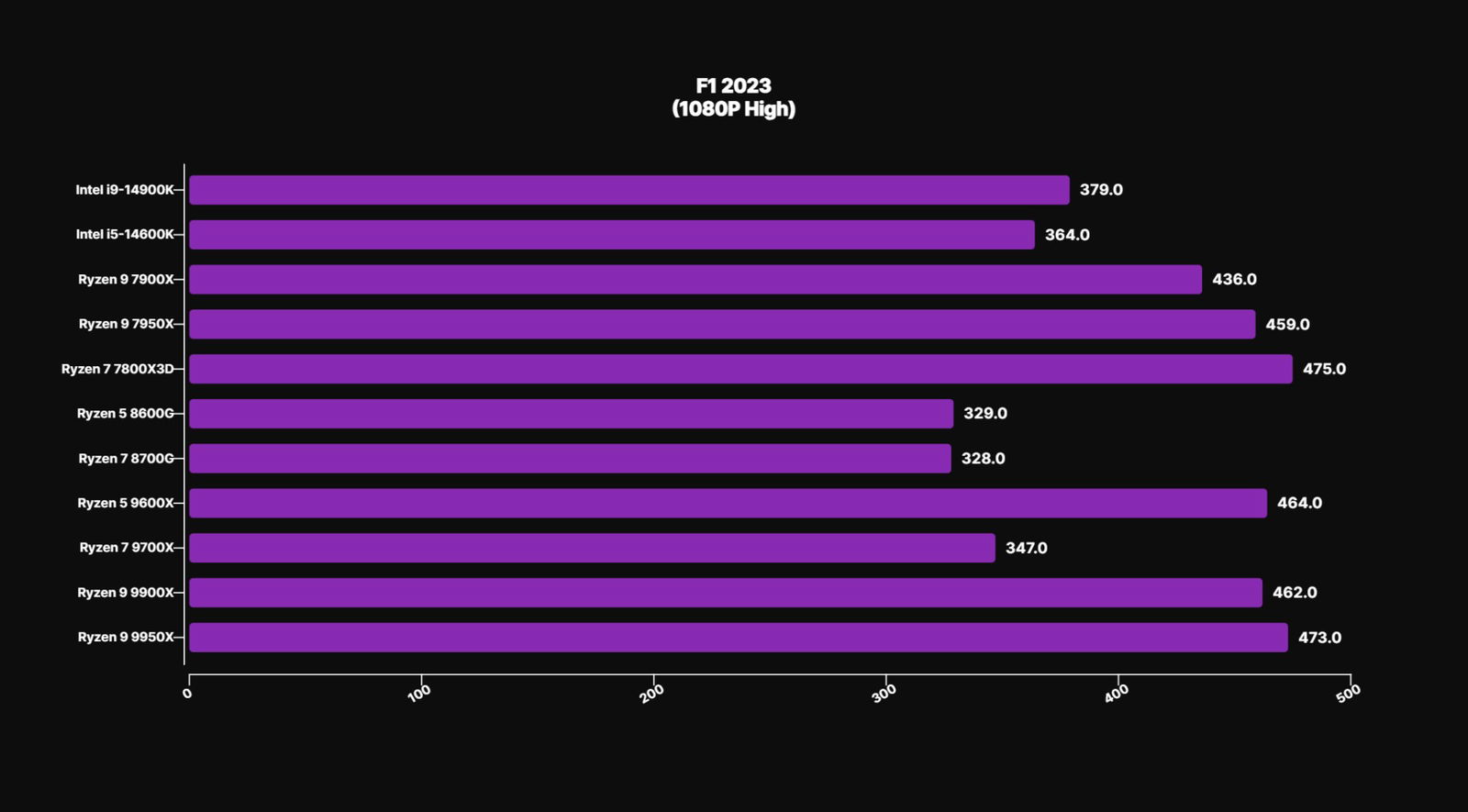
Our F1 2023 benchmarks give a solid first outing for the Ryzen 9 9950X, with it only falling behind the Ryzen 7800X3D in terms of framerates. It manages to deliver close to 100FPS over what the Intel 14900K delivered, with the complete Zen 5 range dominating in terms of performance when compared to Intel’s 14th-gen lineup. It is also worth noting that even with this level of performance, the Ryzen 9 9950X was still more efficient than its Intel counterpart and also managed to run cooler than what we saw with the 7950X, a CPU that frequently saw temperatures well over 80 degrees when being pushed in gaming or creative tasks.
Jumping over to Watch Dogs: Legion, we see a very similar picture, with the Ryzen 9 9950X delivering impressive results that once again see it coming in second behind the 7800X3D. Things were much closer this time around, though, with the 14900K only sitting around 4 percent behind the new Zen 5 flagship. This test also shows the rest of the range falling behind where Intel’s flagship sits in terms of framerates, with even the 9900X failing to take down Intel when it comes to this game.
Rainbow Six Siege continues the trend we’ve seen so far, with the 7800X3D leading the pack, followed by the 9950X in second place and the rest of the Zen 5 lineup close behind. Intel shows some of the most significant performance gaps in this test, with the 14900K trailing over 200 FPS behind the 7800X3D and just under 200 FPS behind the 9950X. While framerates above 400 FPS may not offer noticeable benefits to most users, it’s intriguing to see how much game performance can vary between CPU brands.
In Total War: Warhammer 3, we tested the game at both 1080P Ultra and 1080P Low settings to provide a comprehensive view of the Ryzen 9950X’s performance. These tests offer an intriguing comparison, especially when examining the full Ryzen and Intel 14th-gen lineup. As expected, the 7800X3D emerged as the top performer in both scenarios, but Intel’s offerings came very close to matching its results. At low settings, the 9950X trails behind both 14th-gen Intel CPUs. However, in the Ultra settings test, the entire Zen 5 lineup is nearly on par with the 7800X3D, with all of them outperforming Intel’s offerings.


A similar story can be seen when we look over both Assassins Creed Valhalla and Assassins Creed Mirage, with both games seeing the best performance on the 7800X3D. But in all our tests, the results were very comparable, most within the margin for error, and while Intel did come near the rear in terms of scores, the results were not vastly different, with it only around 5 FPS separating the top from the bottom with Assassins Creed Valhalla and only around 20 FPS when it comes to Assassins Creed Mirage.

Wrapping up with Cyberpunk 2077, the Ryzen 9 9950X finally beats out Intels 14900K and the 7800X3D, delivering a solid 208 FPS. In fact, the entire Zen 5 lineup excelled in the Cyberpunk 2077 Ultra benchmark, showcasing impressive performance across the range. Even the highly efficient 9600X delivered remarkable scores, especially considering its incredibly low 65W TDP. This stands in contrast to the more power-hungry options from Intel, as well as the previous Ryzen 7000 and 8000 series.
“For PC builders, the 9950X represents an exciting option for those looking to create a no-compromise system.”
As I have mentioned in past reviews, provided you have a good GPU backing up the CPU, the differences between each of these chips are relatively minor. Most people would not see the difference of 10 FPS when you are talking with framerates over 150 FPS, but they work as a good metric to see how well the system can take advantage of the other components on offer.

With all the tests done and finally seeing how the new range looks, I am excited about the future of the AM5 platform and AMD as a whole, even if I have some reservations. The Zen 5 launch is an interesting one. It brings to the table CPUs that, on the surface, only seem comparable or slightly more powerful when compared to the Ryzen 7000 series release and Intel 14th-generation CPUs. But that is really only half the picture. AMD has put their focus on efficiency and performance per watt, allowing chips that use much less power to deliver comparable performance.
This means end users have more room to push their systems with overclocking and can get performance comparable to last-generation CPUs while consuming a fraction of what even mid-range chips would utilize. It is a move that has the potential to be very exciting for people, especially in countries where power is expensive or those who just want to see their gaming rig be a little bit more green. This being the top of the range, these power savings are less obvious, with the chip pushed farther and still seeing the 170W TDP as the 7950X the differences are much less obvious.
“The Ryzen 9 CPU stands as one of the best consumer CPUs available, demonstrating the full potential of the new Zen 5 platform.”
For those who want their CPU to run more efficiently during less demanding tasks, AMD has introduced Eco Mode. This setting allows users to reduce their processor’s TDP, such as adjusting a 170W TDP chip down to 105W, which lowers power consumption while maintaining strong performance. It can be configured through AMD Ryzen Master or the BIOS, with notable power savings. While Eco Mode may not be for everyone, it’s a great option for those who want the potential power of the 9950X but prefer to reduce energy usage when using their PC for work. In testing, the feature is impressive, and with one-click activation, it quickly becomes something that even the average user can easily take advantage of.

Being the flagship of this range, this chip showcases the pinnacle of what the current Zen 5 lineup can deliver. The Ryzen 9 9950X CPU stands as one of the best consumer CPUs available, demonstrating the full potential of the new Zen 5 platform. For average gamers looking to play the latest titles, the Ryzen 9600X or 9700X should provide more than enough performance when paired with a solid GPU. However, for those who want the best AMD has to offer and a glimpse into how their new platform can evolve, the 9950X rightfully stands at the top of the range.
The AMD Ryzen 9 9950X truly cements itself as a formidable contender in the high-end CPU market. It offers a compelling blend of raw power, efficiency, and forward-looking features that make it an attractive choice for both gamers and content creators. The impressive gains in multi-core performance and energy efficiency, coupled with robust gaming benchmarks, highlight AMD’s commitment to pushing the boundaries of what’s possible with the Zen 5 architecture.
While the current CPU market is incredibly competitive, the 9950X’s ability to deliver top-tier performance at a competitive price point makes it a standout option for those seeking the best in modern computing. Whether you’re building a cutting-edge gaming rig or a professional workstation, the Ryzen 9 9950X promises to meet your demands and then some.

